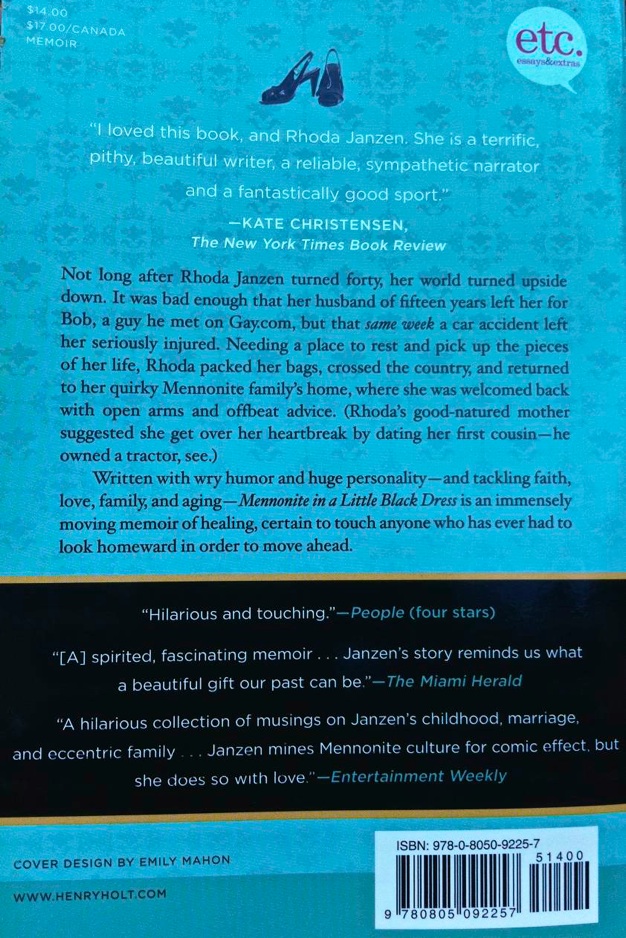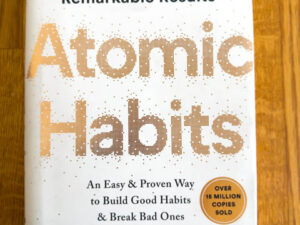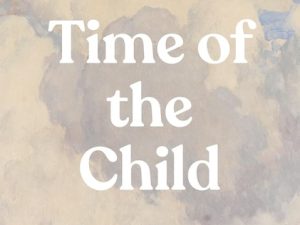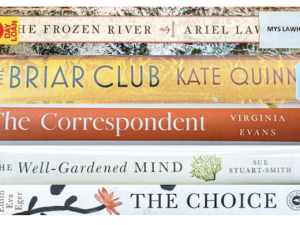
Although I can give this memoir only three stars – due to too much emphasis on bodily functions and marital difficulties discussed in too much detail – it had its moments when it was laugh out loud funny, as well as broaching on profound, so I felt it was worth reviewing here. It was interesting to me how a writer who has left the religious sect of their upbringing can write about it with the unusual combination of both deep respect and blatant irreverence. It made for an interesting mix, and what came across as an authentic voice.
You appreciate how her family welcomes and unconditionally supports her even though she has made choices based on values divergent to theirs. This is even true with her father very high up (equivalent to the pope) in the Mennonite church. No judgement nor condemnation was expressed, which was refreshing, and predisposed me to learn more about them.
I learned that the Amish splintered off from the Mennonites because they thought they were too liberal; I always thought it was the other way around and the Mennonites thought the Amish too strict.
Mennonites would rather do anything than engage in physical violence, including lose a war, go to jail, etc, and have defined themselves by their refusal to fight. They think that if it is worth believing, it is worth doing. Their sense of superiority is not based on what they believe but on what they do – demonstrable things like work habits and hygiene. Mennonites don’t dance; dance “suggested a fatal weakness in priorities.” They believe in work with measurable outcome; dance, and you have nothing to show for it.
Here are a few choice bits:
• “In my opinion sexiness comes down to three things: chemistry, sense of humor, and treatment of waitstaff at restaurants.”
• “Mennonites say ‘There are powers and principalities’ as a way to say ‘it is what it is,’ which is a polite way to show you are listening, while still indicating you’d really rather change the subject.”
• “We can agree on the fact that the human condition is constituted by wild vacillations between altruism and nefarity, between kindness and cruelty…. And since the most virtuous among us displays this adiaphorous morality, what if we agreed just to let people be who they are since we can’t change them anyway?… I have come to believe that virtue isn’t a condition of character. It’s an elected action. It’s a choice we keep making over and over, hoping that someday we’ll create a habit so strong it will carry us through our bouts of pettiness and meanness… It seems to me that there are many paths to virtue, many ways of creating the patterns of behavior that result in habitual resistance to human badness.”
The second half of the book is better than the first part and I enjoyed most the scene of her playing scrabble with her family, which struck me as very funny. With less flatulence and better editing I could recommend this book!







